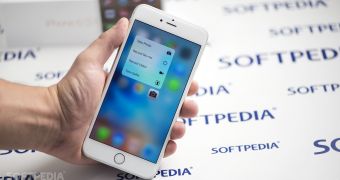Apple has once again been sued, this time by the California Institute of Technology, which claims that Wi-Fi technology used on some devices, including iPhones and iPads, is violating its patents.
In a lawsuit filed with the US District Court for Central California, Caltech claims that its patents were granted between 2006 and 2012 and explains how Apple’s devices are using them without authorization.
The technologies are part of 802.11n and 802.11ac Wi-Fi standards used on the iPhone, iPad, MacBook, and Apple Watch (there are chances they are implemented in other non-Apple devices too, but that’s yet to be determined).
Broadcom also involved in the lawsuit
Caltech wants nothing but a jury trial and also claims that Broadcom, which is the supplier of Wi-Fi modules for Apple’s devices, violated its patents too. The institute requires not only damages for Apple devices that were sold in the last years but also a ban on sales of Apple products in the United States.
“Apple is one of Broadcom's largest customers. In 2012, 2013 and 2014, sales to Apple represented 14.6%, 13.3% and 14.0% of Broadcom Corp.'s net revenue, respectively. […] During this timeframe, Broadcom's Wi-Fi products that incorporate IRA/LDPC encoders and decoders and infringe the Asserted Patents were incorporated into Apple's key products including iPhones, iPads, and Mac computers. […] Broadcom and Apple are jointly and severally liable for infringement of the Asserted Patents,” the documents read.
Caltech is more likely to obtain a settlement, as Apple cannot risk a ban on iPhone sales in the United States, but at the time of writing this article, a comment from the Cupertino-based firm has not been made available.
Last year, Apple was thrown in a similar lawsuit brought forward by the University of Wisconsin-Madison, also for violating patents covering technology that was used on several products, including the iPhone. Apple lost the lawsuit and had to pay damages to the university.

 14 DAY TRIAL //
14 DAY TRIAL //